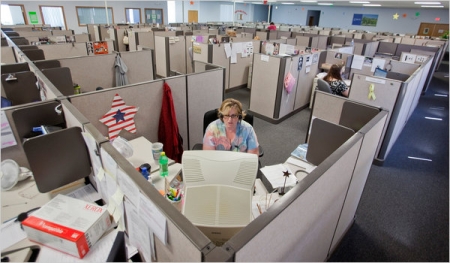August 17th, 2010 by DrWes in Better Health Network, Health Tips, News
No Comments »

Sending a child off to college? Call your lawyer first. From the Weekend Wall Street Journal:
After a few clients ran into difficulty getting information about adult children who were ill, Sheila Benninger, an attorney in Chapel Hill, N.C., began recommending that clients’ children designate a health-care power of attorney after they turn 18 to identify who can speak for them if they can’t.
She also includes a Health Insurance Portability and Accountability Act, or HIPAA, release form that allows patients to determine who can receive information about their medical care and whether information about treatment for substance abuse, mental health or sexually transmitted diseases can be disclosed.
You don’t have to use a lawyer. Generic health-care power-of-attorney forms can be found online. If the school has a HIPAA release online, it’s best to use that more-tailored document.
Parents should keep a copy in an email folder, where it can be easily accessed in an emergency. And students should designate a general power of attorney so someone can pay bills or handle other issues if they go abroad.
It’s good advice for those of us shipping one more child back to college this week.
-WesMusings of a cardiologist and cardiac electrophysiologist.
Hat tip: Instapundit
*This blog post was originally published at Dr. Wes*
August 10th, 2010 by Steven Roy Daviss, M.D. in Better Health Network, News, Research
No Comments »


 From the front page of [the August 1st] Baltimore Sun: Researchers Explore Link Between Schizophrenia, Cat Parasite. Frank D. Roylance writes:
From the front page of [the August 1st] Baltimore Sun: Researchers Explore Link Between Schizophrenia, Cat Parasite. Frank D. Roylance writes:
Johns Hopkins University scientists trying to determine why people develop serious mental illness are focusing on an unlikely factor: a common parasite spread by cats. The researchers say the microbes, called Toxoplasma gondii, invade the human brain and appear to upset its chemistry — creating, in some people, the psychotic behaviors recognized as schizophrenia. If tackling the parasite can help solve the mystery of schizophrenia, “it’s a pretty good opportunity … to relieve a pretty large burden of disease,” said Dr. Robert H. Yolken, director of developmental neurobiology at the Johns Hopkins Children’s Center. Read more »
*This blog post was originally published at Shrink Rap*
August 1st, 2010 by John Mandrola, M.D. in Better Health Network, Health Tips, Opinion, True Stories
No Comments »

Do you remember the visceral sensations of angst over an upcoming final exam? Or the first procedure as an independent doctor? A major presentation, perhaps?
Life’s exams test not only specific knowledge and skill, but one’s self esteem as well. And it’s the self esteem portion that creates the stomach churn, the palpitations, and the random thoughts of doom.
The future lurks over you for weeks, like a weighty backpack, or the possibility of encountering the bully on your walk home from elementary school. (For my bony self, her name was Marilyn.) Read more »
*This blog post was originally published at Dr John M*
August 1st, 2010 by Berci in Better Health Network, News, Research
No Comments »

 There’s a new profession in the Internet era, the so-called “Internet Content Reviewer.” These people check all of the submissions and uploads on huge social networking sites, review tens of thousands of pictures, and make sure only legal content is being uploaded to these communities.
There’s a new profession in the Internet era, the so-called “Internet Content Reviewer.” These people check all of the submissions and uploads on huge social networking sites, review tens of thousands of pictures, and make sure only legal content is being uploaded to these communities.
It seems a new mental health, “social” disease is starting to spread: Internet Moderitis. An excerpt from a New York Times piece on the topic:
Ricky Bess spends eight hours a day in front of a computer near Orlando, Fla., viewing some of the worst depravities harbored on the Internet. He has seen photographs of graphic gang killings, animal abuse and twisted forms of pornography. One recent sighting was a photo of two teenage boys gleefully pointing guns at another boy, who is crying.
YouTube, a division of Google, is an exception. If a user indicates a video is inappropriate, software scans the image looking for warning signs of clips that are breaking the site’s rules or the law. Flagged videos are then sent for manual review by YouTube-employed content moderators who, because of the nature of the work, are given only yearlong contracts and access to counseling services, according to Victoria Grand, a YouTube spokeswoman.
Photo credit: Stephen Mally for The New York Times
*This blog post was originally published at ScienceRoll*
July 31st, 2010 by JenniferKearneyStrouse in Better Health Network, Health Tips, News, Research
No Comments »

A study published in the July PLoS Medicine is getting a lot of press for its conclusion that strong social networks are related to increased lifespan.
The meta-analysis of 148 studies involving 308,849 people found that those with stronger relationships were 50 percent more likely to survive over 7.5 years of follow-up. What’s more, the researchers reported that a lack of strong social ties is as bad healthwise as drinking or smoking, and worse than not exercising or being obese.
But although the association between strong social ties and improved longevity seems robust, other factors could be at play, and applying the findings in clinical practice could be difficult. And sorry, Facebook fanatics: Online “friendships” aren’t thought to count as much as in-person ones do. (PLoS Medicine, New York Times, TIME, The Atlantic)
*This blog post was originally published at ACP Internist*





 From the front page of [the August 1st] Baltimore Sun:
From the front page of [the August 1st] Baltimore Sun: 











